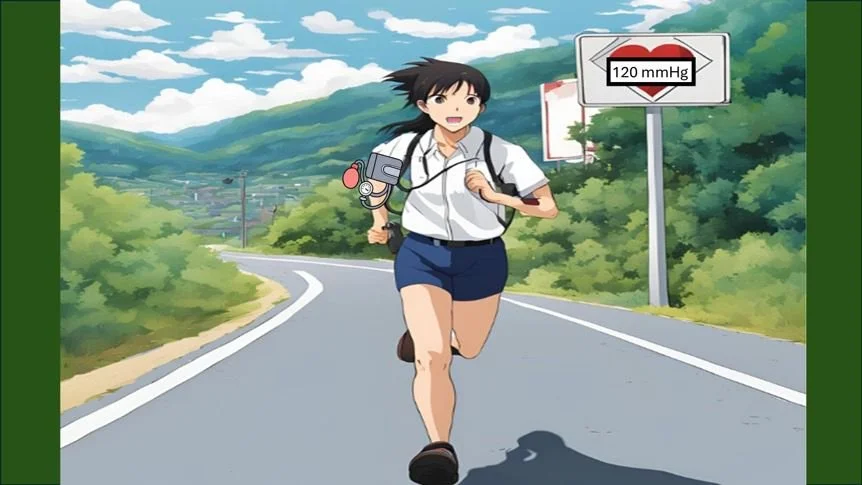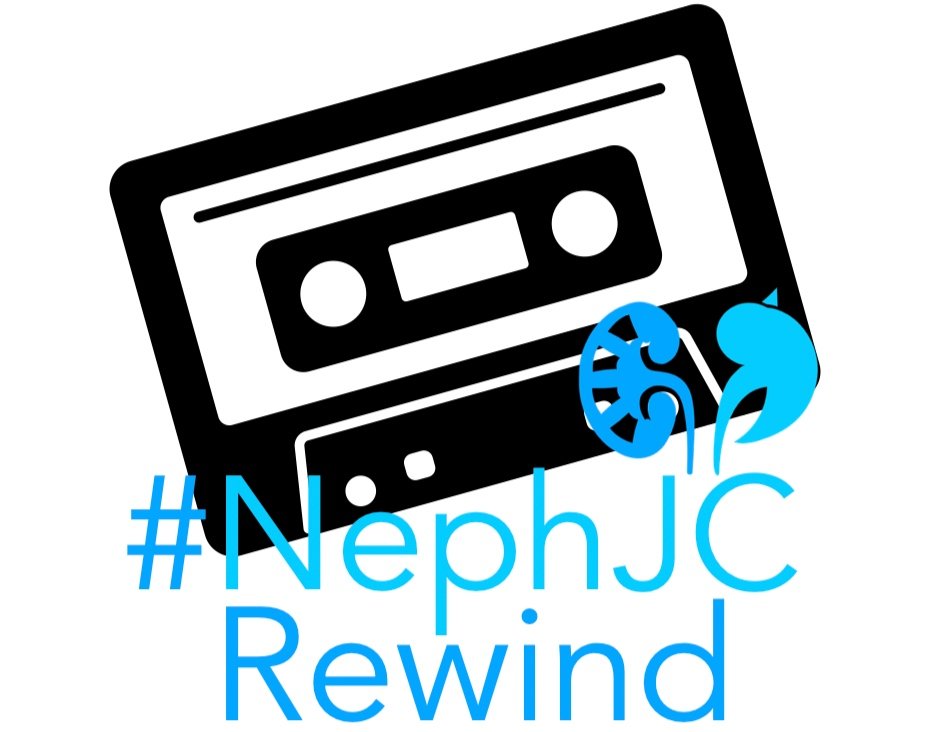A commentary putting the recent finerenone and spironolactone trials in perspective
Análisis del Estudio FINE-HEART_El Resumen Visual
El análisis FINE-HEART llega a NephJC, donde se agrupan tres ensayos clínicos clave que evalúan el impacto de la finerenona en pacientes con insuficiencia cardíaca y enfermedad renal diabética.
¿Será la finerenona la próxima terapia de impacto para mejorar el eje cardio-reno-metabólico?
Descubre más en este resumen visual creado por la estudiante del NSMC, @KajareeG
The FINE-HEART Visual Abstract
Checkout the visual depiction of pooled analysis of the Fine-Heart study by NSMC Intern Kajaree Giri.
Re”FINE”ing the role of non steroidal MRAs in Cardio Kidney Metabolic syndrome
Playing It Safe: Can Felzartamab Fill the Gap in AMR Treatment?
2024 #NephJCKidneys vote begins
FELZARTAMAB en el Rechazo mediado por Anticuerpos - El Resumen Visual
El Resumen Visual
El Ferzartamab muestra resultados prometedores en el tratamiento del rechazo mediado por anticuerpos en trasplantados renales. En este ensayo clínico fase 2 aleatorizado, se evaluó el perfil de seguridad y los resultados secundarios a las 24 semanas.
¿Podría este anticuerpo anti-CD38 ser la nueva opción terapéutica revolucionaria para prevenir la pérdida del injerto mediada por anticuerpos? Observa el resumen visual realizado por el pasante del NSMC, Dr. Shahin Mohammed.
FELZARTAMAB in Antibody Mediated Rejection - The Visual Abstract
Can felzartamab represent a new hope for antibody-mediated rejection? Check out the visual abstract by Shahin Mohammed
Ensayo Clínico ESPRIT - El Resumen Visual
El Resumen Visual
El control de la hipertensión es un pilar fundamental en la prevención de enfermedades cardiovasculares en pacientes de alto riesgo. El ensayo clínico ESPRIT resulta clave para determinar si un control más intensivo de la presión arterial sistólica (menos de 120 mm Hg) ofrece mejores resultados en la reducción de eventos cardiovasculares mayores, en comparación con el control estándar (menos de 140 mm Hg).
En este resumen visual, creado por Francisco Santamaria, analizaremos en detalle los hallazgos del estudio ESPRIT y sus implicaciones para el manejo de la hipertensión en pacientes con alto riesgo cardiovascular.
The ESPRIT Trial Visual Abstract
Does strict BP control help prevent major vascular events in patients with high CV risk? Check out the VA by NSMC intern Francisco Santamaria
The pressure is on! Unravelling the ESPRIT of Intensive vs Standard BP Control
This week, we will discuss the ongoing saga of blood pressure targets in patients with hypertension. This time its ESPRIT (Effects of Intensive Systolic Blood Pressure Lowering Treatment in Reducing Risk of Vascular Events) making a case for case for intensive BP control in most hypertensive individuals, including those with a history of diabetes and stroke.
The ASN Kidney Week NephJC Party
The Friday night tradition of Blogger Night goes back to Philadelphia in 2011
2012 in San Diego (This was everybody who was there)
2015, first class of NSMC graduates at Kidney Week, San Diego
2016, second class. Birth of the NephJC Kidneys. Chicago.
2018 the first NephJC self-funded party. San Diego.
2019, the year before the pandemic. Epic.
2023 The first live Freely Filtered is recorded. And The Curbsiders
2024
This year will be no different. We have rented out Deck655, a mile from the conference center for this year’s party. Mark your calendars, Friday, October 25th from 7 to 11 pm, this will be the place to be.
At 8, we will have a show. The includes an interview of Tom Mueller author of How to Make a Killing. Blood, Death and Dollars in American Medicine (Amazon). Music by Tim Yau (@Maximal_Change) and a live podcast recording of Freely Filtered as we draft Friday’s Late Breaking and High Impact Clinical Trials.
Open bar
Appetizers and food served all night
The catch is, you have to pay. Our fall fund raiser opens this week and we need you to donate to come to the party. Click the link below to donate!
Nominations are OPEN for the 2024 NephJC Kidneys
Summer Book Club 2024. The Covenant of Water
NephJC Rewind: ADVOR
NephJC covered the most important manuscripts in nephrology for over ten years. With a decade of history, NephJC has covered a significant amount of the evidence used in day-to-day clinical care. Many of us find ourselves repeatedly sending links to old NephJC summaries. NephJC Rewind is an attempt to resurface some of these older yet still relevant summaries.
Last week I tweeted about this year old trial of dapa versus metolazone in diuretic resistant fluid overload.
Here is the “visual abstract” from the journal for the trial
The tweet triggered a lot of interesting commentary, but I was struck by this post in particular
We covered the ADVOR trial when it was published in 2022. I think a critical difference between ADVOR and the above trial of dapa v metolazone is that ADVOR added acetazolamide to furosemide and compared it to furosemide plus placebo. The title of the ten-tweet-NephJC got it right “More Diuretics = More Diuresis.” ADVOR pitted a diuretic against placebo and found that adding more diuretic got more diuresis (and natriuresis).
It is interesting that the decongestion score developed for ADVOR was used in this dapa v metolazone trial also. Listen to the Freely Filtered Episode for a breakdown of why The Filtrate found this score problematic.
How often are you able to clear pleural effusions and ascites in three days of diuresis?
Regardless of the concerns some had about the ADVOR trial, it is clear it has changed practice patterns and expanded peoples conception of sequential nephron blockade beyond the convoluted tubule.
Ensayo Clínico PROTECTION - El Resumen Visual
En búsqueda de coadyuvantes nutricionales para prevenir el deterioro de la función renal, veamos que nos demuestra el estudio PROTECTION con este magnifico resumen visual realizado por la interna NSMC Samantha Verdugo .
PROTECTION trial - visual abstract
Should We Protect Kidney Function with Intravenous Amino Acids? Checkout the colorful VA of PROTECTION Trial by NSMC Intern Samantha Verdugo .
Trial by Combat: Do Amino Acids provide PROTECTION to the Kidneys?
NephJC Rewind: PATH-BP
We have been doing NephJC for over ten years and we feel, in that time we have covered the most important manuscripts in nephrology. With a decade of history NephJC has covered a large amount of the clinical evidence used in day to day clinical care. In fact I find myself sending links to old NephJC summaries pretty commonly and we would like to surface some of these older summaries from time to time. So here is out first NephJC Rewind
Last week JAMA Internal Medicine published this manuscript any Tim Anderson, Management of Elevated Blood Pressure in the Hospital—Rethinking Current Practice. Here, Dr. Anderson is trying to operationalize the work he has been doing for quite some time demonstrating the lack of efficacy and frank harm caused by treating inpatient hypertension. This has been explored in NephJC, Freely Filtered, and NephMadness. As part of this manuscript he supplied a flow chart that showed acetaminophen as a cause of hypertension:
I tweeted about this and a number of people asked about acetaminophen being listed as a cause of drug induced hypertension. This is where PATH-BP comes in (MacIntyre, Circulation 2022). This was a well done cross over trial with a two week washout. Patients took a gram of acetaminophen four times a day or a matched placebo.
The primary outcome was a change in mean daytime systolic ambulatory BP.
There was a statistically significant increase in mean daytime systolic ambulatory BP of 4.7 mm Hg (95% CI, 2.9-6.6; P<0.0001) with acetaminophen compared with placebo.
This was not a mechanistic study so we don’t no why but it is possible that acetaminophen blocks renal prostaglandin synthesis just like NSAIDs do.
Take a look at NephJC’s discussion as well as the original paper.

























































